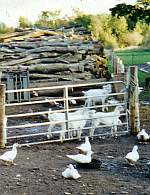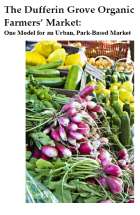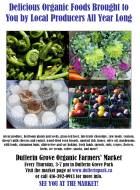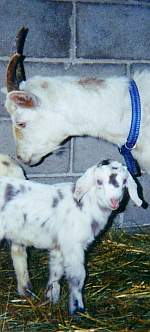
Pages in this Folder:

Related Folders:
See also Department Site Map
Publications:
Market-related videos
Comments?
For the basics, see
- Website & Privacy Policies
- How To Get Involved
- The Role of the Park
Search options:
Department Site Map
Cheese links
Ontario Cheese Map
Thanks to the Ontario Cheese Society: Cheese Map
Custodians:
Ontario Cheese Producers

posted January 19, 2005
From Anne Freeman, our Market Manager, November 29,2004
For some time now, we've been wanting to learn more about good local cheese for the benefit of the market. That's how I found myself at the Ontario Cheese Society's inaugural conference last Friday. A small room at the Convention Centre was filled with people who have passionate feelings about cheese: artisanal cheesemakers and wannabes, food writers, cheese sellers, sheep farmers, Ministry of Agriculture officials, a dairy scientist, etc. It was a friendly and interesting event. We did get to eat some very good cheese, and I confess that a couple of small, fragrant pieces came home in my pocket for someone dear to me who dreams of a bright, cheese-filled future. The future could be promising for local cheese, but it's complicated!
A few points of information for those of you who are cheese enthusiasts:
What about organic? Stefanie Diament, a sheep farmer from Milky Way Farms in Shelburne was most helpful in explaining her methods and concerns to me. Her highest priority is sustainability in agriculture. For this reason, she wants her sheep to live on pasture. But sheep are prone to parasites which they pick up while grazing, so she has to worm them--not an acceptable organic practice, though she is careful to do it when the sheep aren't producing milk. In order to be certifiably organic, she would have to confine the sheep to a small, controllable environment, and bring in feed for them. Result: no worms, but a poorer quality of life for the sheep, higher costs, and less environmental sustainability.
What about <strong>raw milk cheese</strong> in Ontario? As well as a fiery speech by <b>Gina Mallet</b>, who has written a book called "Last Chance to Eat" about how the great tastes of the world(raw milk cheese among them) are disappearing as food production becomes ever more regulated and standardized, there was a presentation of some truly boggling(for me)ongoing scientific research into various aspects of food safety. The basic facts are that you or I cannot legally buy raw milk for human consumption in Ontario, but cheese made from raw milk that is aged at least 60 days can be made and sold in Ontario. The aging process greatly reduces the risk of harmful bacteria being present in the cheese. Regulations require soft, unripened cheeses to be made from pasteurised milk. Pasteurisation kills the good bacteria with the bad, and the question of what it does to flavour-potential brings out strong statements from cheese lovers. More than a high level of risk, there is a high level of fear that any incident of food poisoning, whether from raw milk or, perhaps more likely, from improper handling, would be disastrous for Ontario cheesemakers, so this is a hot issue.
What about cheese for our market? Many of the cheesemakers present at the conference work on a remarkably small scale. Ontario's Holstein farms run on a quota system that some would argue is the only reason we have a dairy industry left in this province, but the system favours huge operations. According to Larry Lupecz, who represented milk producers at the conference, small scale dairy farms are disappearing at the staggering rate of 200-250 per year in Ontario, their production absorbed by large ones. Sheep and goat farmers, operating outside the quota system, are the main producers of really interesting cheese, as opposed to what was referred to as "commodity" cheese. They may have just 50 or so milking animals. Here's their challenge: to produce cheese that is good enough to compete with imports from countries with substantial agricultural subsidies, longstanding cheesemaking reputations, weaker environmental requirements for farmers, lower labour costs...and the list goes on. But they are determined!
We are fortunate to have Ute Zell of Stonehenge Farms bringing in cheese from 'Mornington and Ewenity (that's pronounced unity in case you wondered) dairies, two of the cheesemakers present at the conference. In the hope that all this talk about cheese has got you interested, we're planning some cheese tastings at the market to help you get more familiar with what they make.





 Printer friendly version
Printer friendly version
